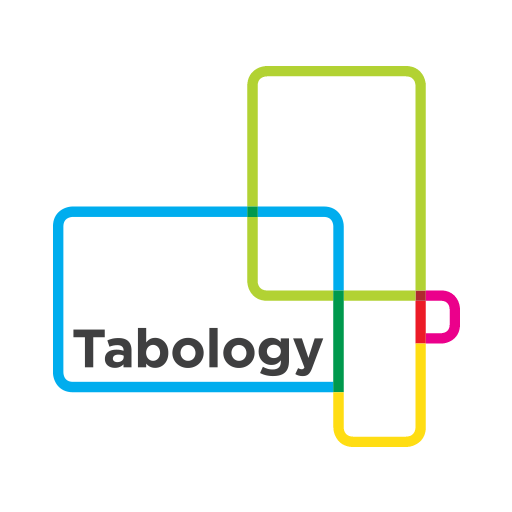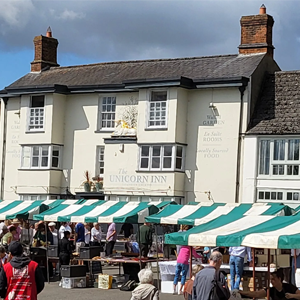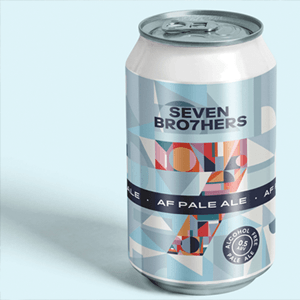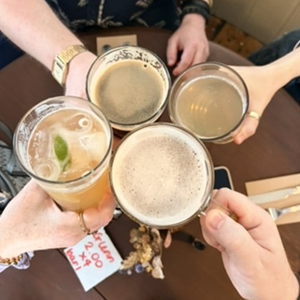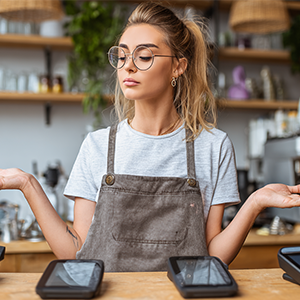6 key features of a Restaurant EPOS
An EPOS or electronic point of sale system is the central management system for your business. A restaurant EPOS system is not only responsible for processing orders & taking payments, it should help you to run your business. This can mean managing stock, generating relevant & insightful reports, managing staff, and even taking bookings.
Flexible table plan
Your restaurant EPOS should allow you to easily draw and edit bespoke table plans, reflecting your venue with not only tables but structural elements too. Creating multiple plans to use for different areas of your venue if needed.
Once you’ve created your table plan, you can use this across the EPOS screens to easily add orders to tables or view, print and pay bills.
Allergen & nutritional info
Allergens are a key consideration for a restaurant, so having all the relevant allergen information for your menu available to staff at the touch of an button, saves staff having to try and remember everything, or nip back and forth to the kitchen asking questions. You can also look to include all these allergens directly into the mobile ordering menu for guests to view directly themselves.
Nutritional info can also be included which will become mandatory for those businesses with over 250 staff to display on menus from 1st April. Whilst this won’t directly impact smaller businesses, customer expectations may begin to move in this direction once it becomes more common.
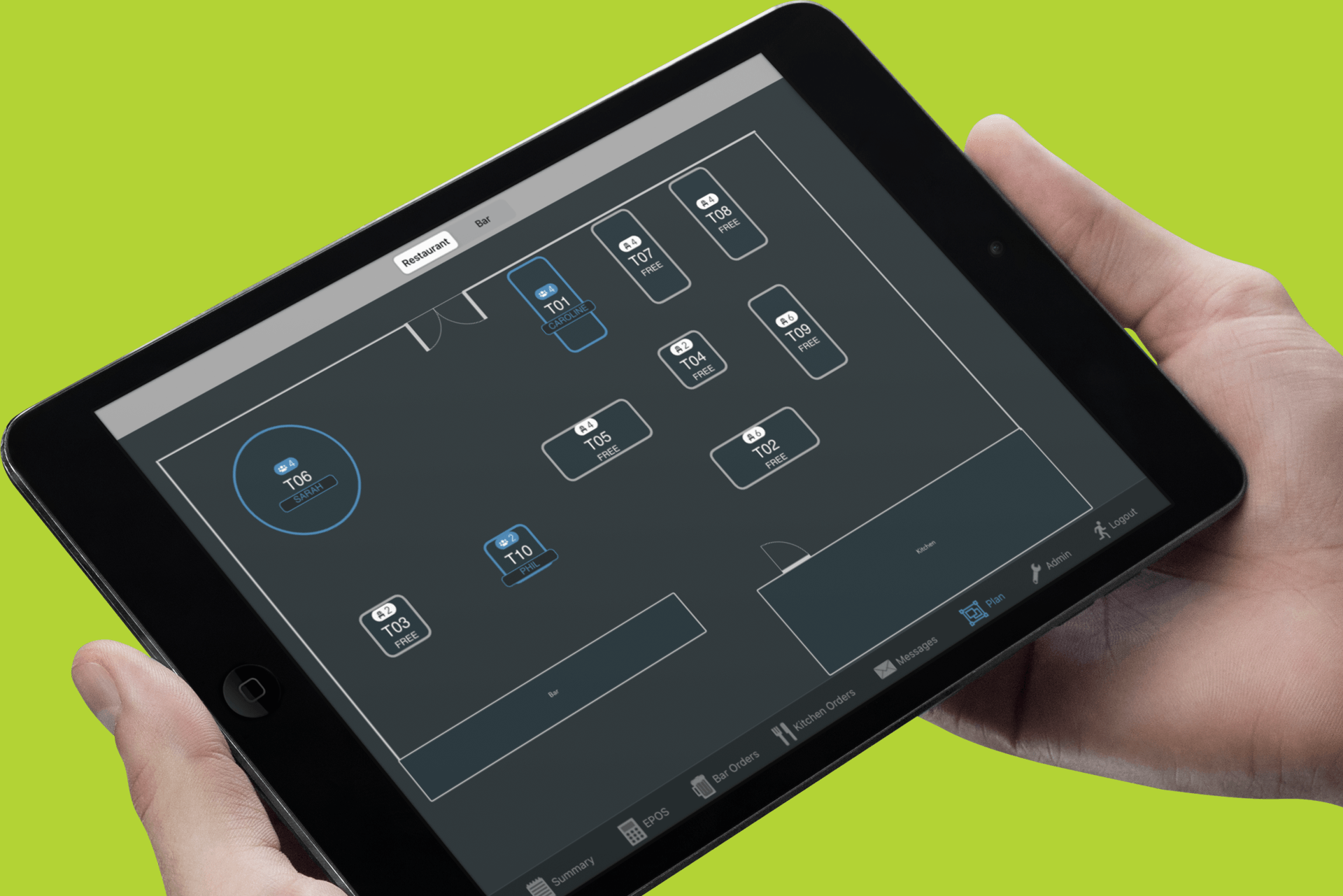
Flexible ordering options
Table side
Restaurants have moved away from staff writing down orders at the table and then heading back to a service area or bar to key the orders into the EPOS. Staff are looking to have a portable EPOS they can take to the table to input orders. This not only reduces errors and ensures orders are routed to the relevant areas as quickly as possible, but having the order process take place table side, means your EPOS can prompt questions about how food should be cooked and ensure staff are upselling sides and extras where possible.
Mobile ordering
Mobile ordering has become far more accepted during the pandemic, and while most restaurants and guests will likely favour having a personal interaction to place their first orders, having an integrated mobile ordering option just allows guests to quickly order additional drinks or desserts without needing to flag down a staff member. The integration element is key here, meaning all the orders come through directly into your EPOS and can’t be missed. You don’t want to be running two systems side by side and having to key orders from one system to another.
Click & collect or delivery
As venues were forced to close over the past two years some have found a really promising revenue stream from click & collect and delivery, which looks set to continue as customers now demand more exciting options when they eat at home.
A good restaurant EPOS should allow you to either manage a click & collect / delivery service yourself, saving you paying any third party fees for additional systems. Or be able to pull all the orders from the likes of Deliveroo, Uber Eats and JustEat into your EPOS, to manage everything centrally.
Our mobile ordering solution works in and out of venue, so you can direct customers to a web page to place orders for either click & collect or delivery if you have drivers to facilitate this. We also have the ability to pull orders through from other delivery platforms into your EPOS. This not only means orders can’t be missed, but your stock will be correctly managed, and all the revenue and profit will be included in your reporting.
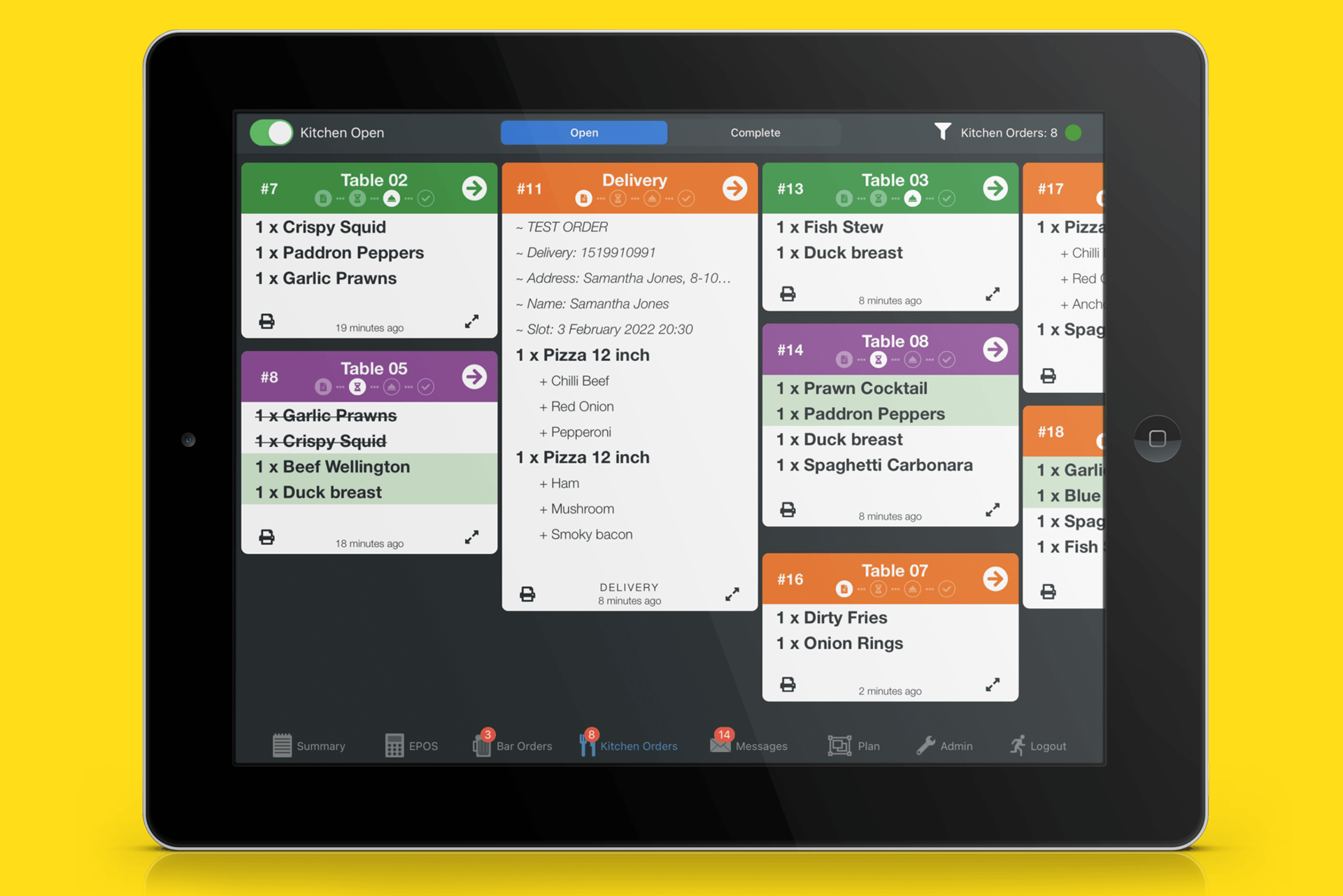
Industry relevant reporting
Whatever size of restaurant you’re running you will want access to intuitive EPOS reporting and key insights in real-time. Tracking sales, stock, staff hours and expenditure, as well as the ability to track the popularity of particular menu items and specials.
We talk about what we consider to be the top 5 hospitality EPOS reports in a recent blog article.
Interactive kitchen screens
Whist routing printed tickets to different printers will work for many restaurants, there are some real benefits to be using an interactive kitchen screen.
These enable you to receive and acknowledge orders, keep track of who is preparing them and send ‘food ready’ messages to the front of house. Our restaurant EPOS also enables you to send other messages between front and back of house, for example a mains away message, or to let staff know that items have run out, or wait times have increased.
Using a kitchen screen enables better communication between front of house and the kitchen, allows you to track food service times, and cuts out unnecessary printing.
Booking system
Many restaurant EPOS systems will have a third party integration with existing booking software, enabling the two systems to talk to each other. This can work well if there is a particular booking system you want to use and it has a good integration with your EPOS. However, this does involve learning and paying for two separate systems and having your data split between them.
A fully in-built
booking system, will see you making cost savings, but also ensure your customer has a smooth interaction process all the way through from booking enquiry through to arrival at the venue, with any deposits paid being credited to their tab on arrival. It also means all your data from the initial booking request to the sales made to the guests when they arrive is all in one system.
